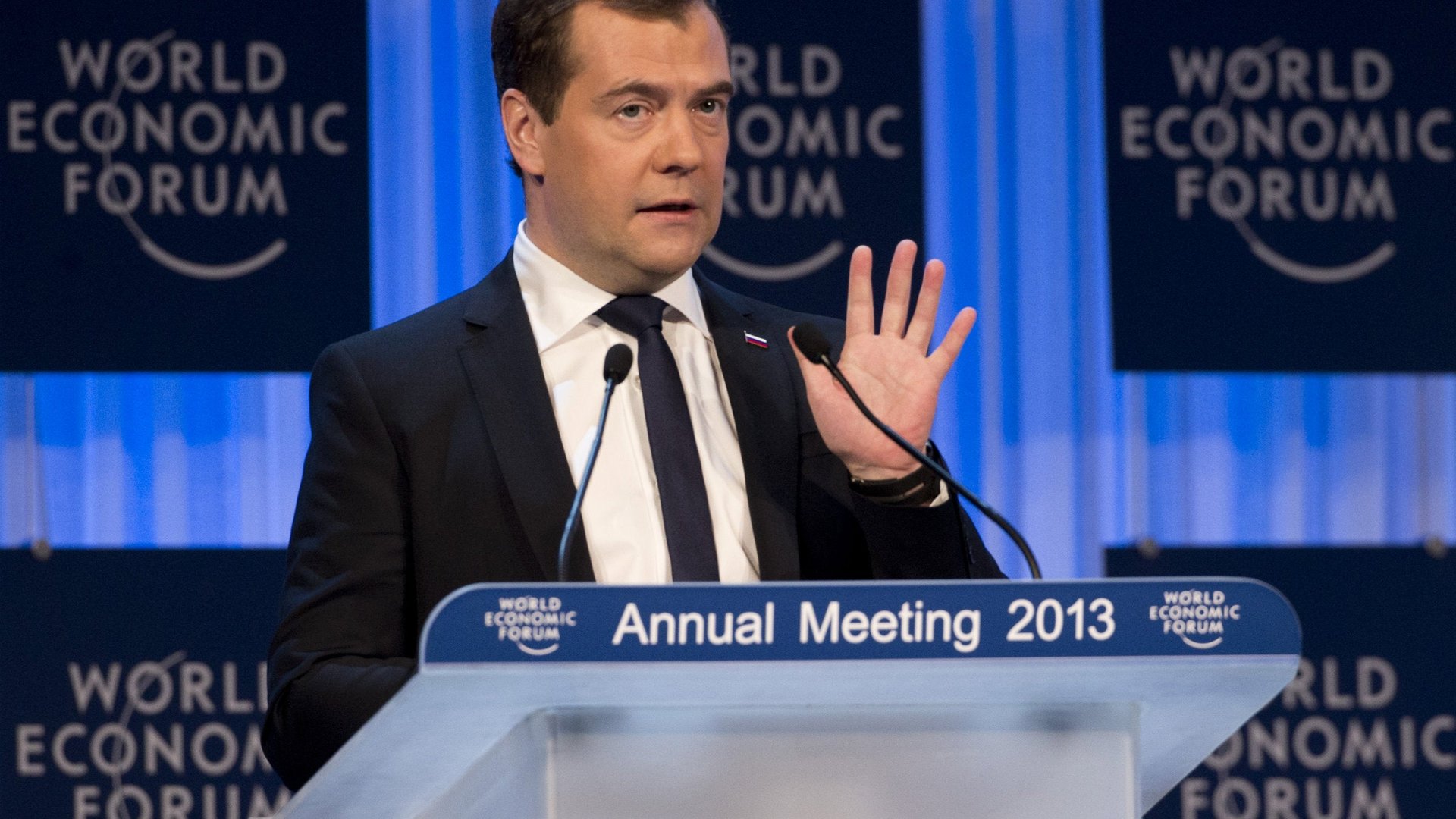Magnitsky trial postponed in Moscow, but goes on virtually in Davos
A Moscow court today postponed the posthumous fraud trial of a lawyer whom the West regards as a cause celebre, but a virtual trial of the case went on over the last few days in Davos, Switzerland. It pitted Russian Prime Minister Dmitry Medvedev against the nation’s critics.


A Moscow court today postponed the posthumous fraud trial of a lawyer whom the West regards as a cause celebre, but a virtual trial of the case went on over the last few days in Davos, Switzerland. It pitted Russian Prime Minister Dmitry Medvedev against the nation’s critics.
The Moscow court delayed the trial and named a state-appointed defense team after a boycott by Sergei Magnitsky’s lawyers, who say the proceeding is politically motivated.
But proxies for the two sides went after each other in Davos, where the annual World Economic Forum was held last week. A lawyer representing Hermitage Capital, Magnitsky died in a Moscow jail in 2009 after accusing Russian officials of stealing $230 million in a tax scheme.
In December, his death turned into an international issue when President Barack Obama signed a law called the “Magnitsky Act,” which bars entry to the US for officials regarded as complicit in the lawyer’s death. Russia followed with an “anti-Magnitsky Act,” which barred Americans from adopting Russian children.
The US campaign to enact the Magnitsky Act was led by Hermitage CEO Bill Browder. In Davos, Browder lashed out against a Medvedev-led Russian delegation in town to promote investment. “The Russian government plays this silly game,” he told Fox News. “They wash up, dress up, come to Davos and pretend they are normal, Western business people looking to attract investment, and in my opinion, they shouldn’t be allowed to behave like criminals at home and then dine at our tables with white tablecloths when they come to Davos.”
In a series of media interviews, Medvedev swatted away questions about Magnitsky. In an interview with Bloomberg, he dismissed Magnitsky’s claim to have unearthed wrongdoing in an investigation. He was “not a truth-teller,” but “an ordinary corporate accountant or lawyer who served his boss.” The Magnitsky case, he said, is “a politicized invention.”